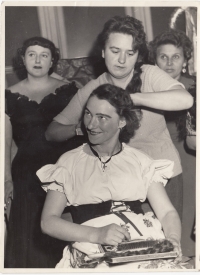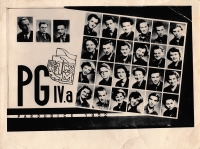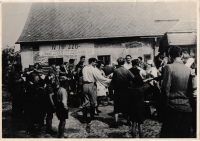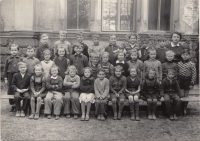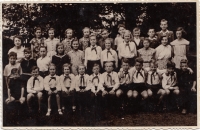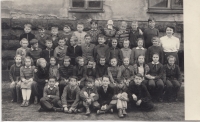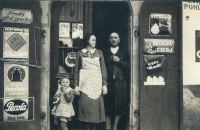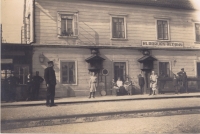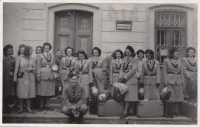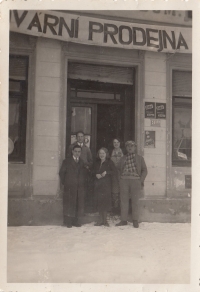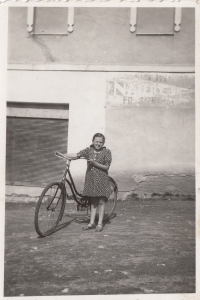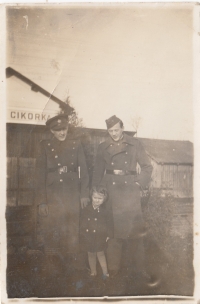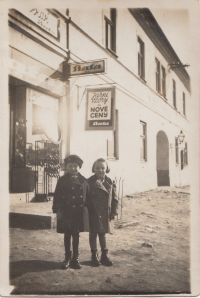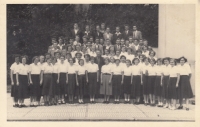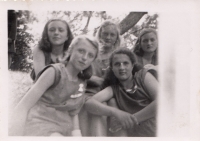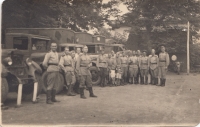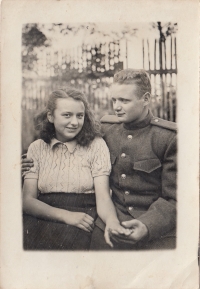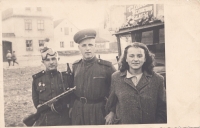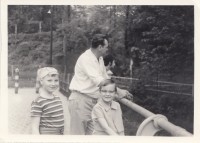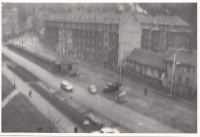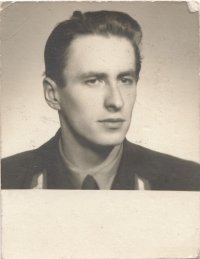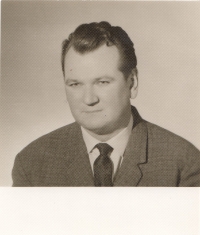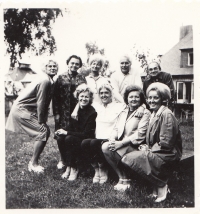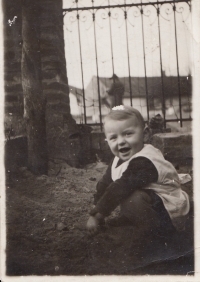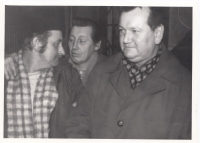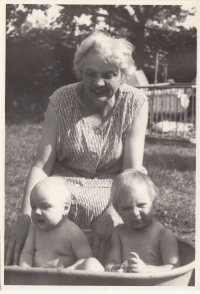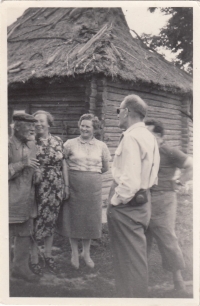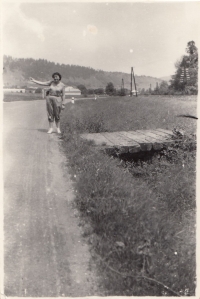We were occupied by the grandchildren of those we loved
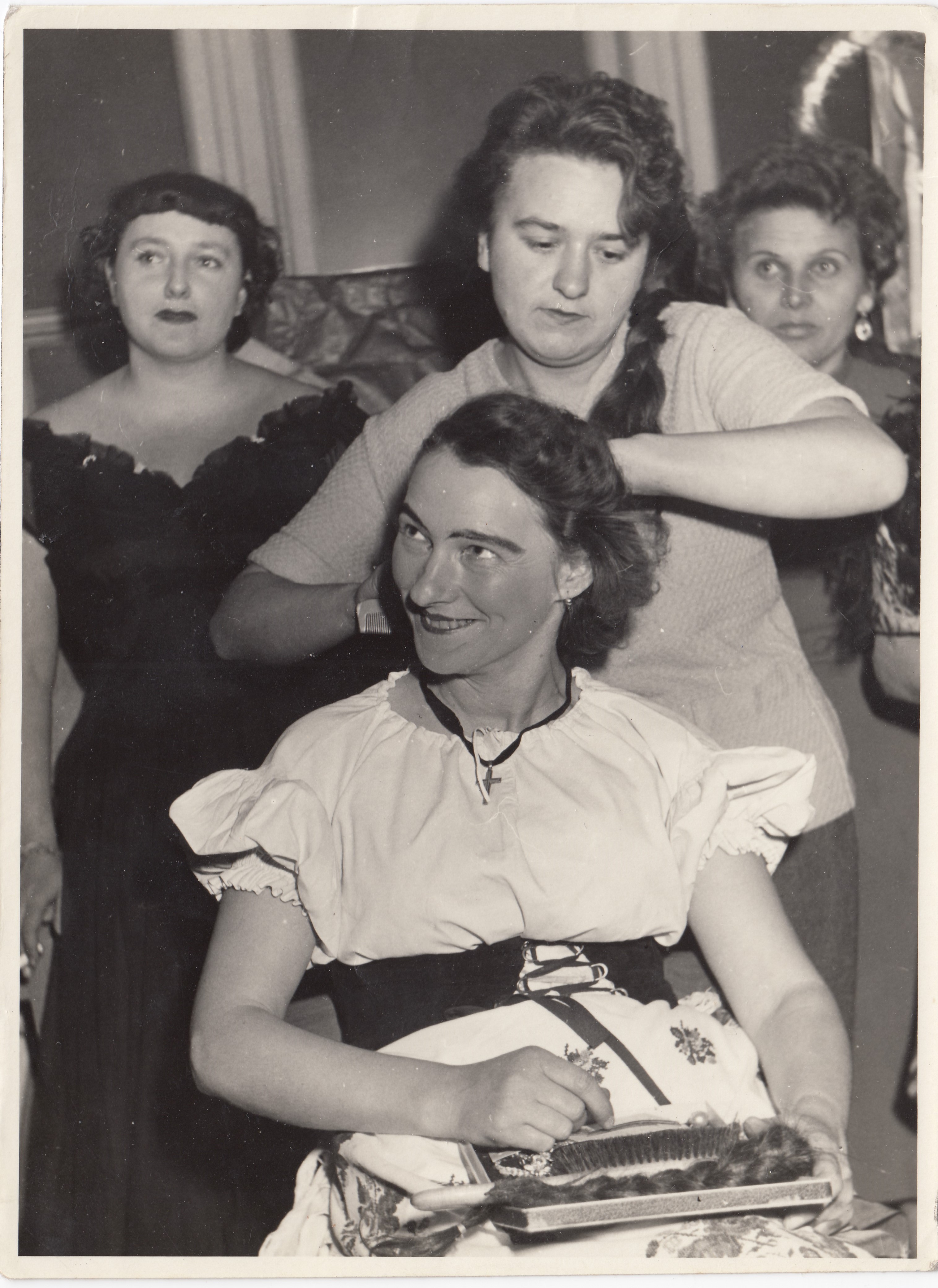
Stáhnout obrázek
Eva Hoskovcová, née Jelínková, was born on March 1, 1933 in Břehy u Přelouče into a trade family of František and Anna Jelínková. In 1938 they moved to Chroustovice. She experienced the arrival of German soldiers on bicycles in March 1939, she remembers the war bombing of Kolin and Pardubice and the euphoria in the days of liberation by the Red Army. Eva and her mother participated in June 1948 XI. All-Sokol Rally in Prague. In 1948, the Communists nationalized Jelínek‘s family‘s shop. Then the family moved to Vysoké Mýto. Eva entered the grammar school in Pardubice, after its completion she graduated from a two-year pedagogical lyceum. In 1952 she got a place in Liberec. Here she taught at various primary schools and studied Czech and Russian at Charles University, she did not complete her studies. In the 1950s, she married Lubor Judl, who served in the military with auxiliary technical battalions and died shortly after returning from the war due to a serious illness. She married Oldřich Hoskovec for the second time in 1960. They raised two children Markéta (* 1962) and Tomáš (* 1963) together. From 1966 she started teaching in a special school and she completed the studies of pedagogical psychology (part-time) at Charles University. In August 1968, she experienced the occupation by Warsaw Pact troops in Liberec. Before 1989, she worked as a member of the then National Committee in Liberec. She left school in 1990 and until 2003 she worked as a cashier at the Naive Theater in Liberec. To this day, she is publicly involved and is a member of the non-profit organization Liberec Civil Society.
